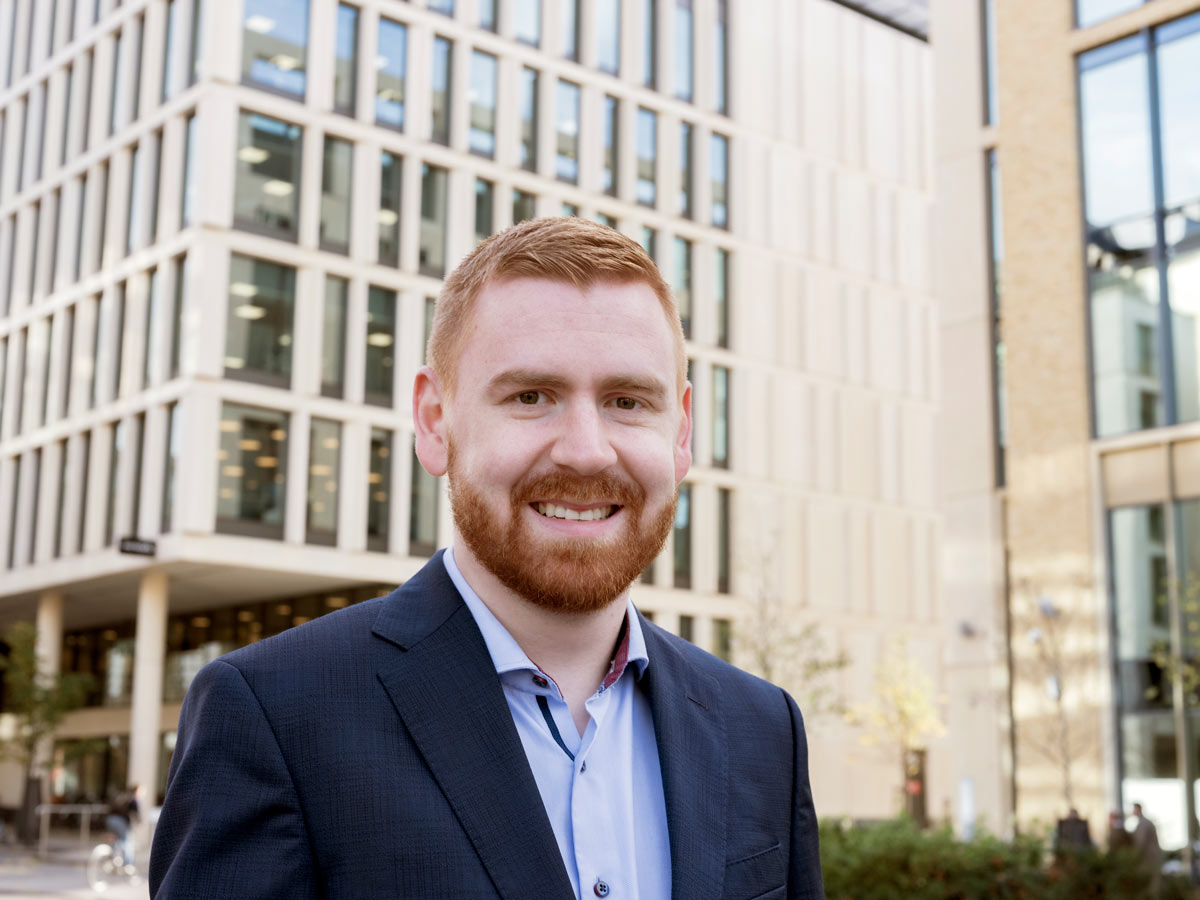Co-founder and CEO, Cyted


Co-founder and CEO, Cyted
As a teenager growing up in Germany, Marcel Gehrung first became interested in computers during a year he spent at home recovering from heart surgery. What started as a hobby in computer programming turned into an academic interest in artificial intelligence, eventually leading him to earn a doctoral degree in machine learning in healthcare at Cambridge.
A key collaboration at Cambridge yielded an opportunity that changed his life trajectory. There, he met Rebecca Fitzgerald, a professor of cancer prevention who had been working on technology that would find abnormal cells in the human esophagus. Together, they founded the company Cyted, a gastrointestinal oncology diagnostics company, where he is now chief executive officer.

Marcel Gehrung, Ph.D.
“That was the journey of how I brought the worlds together,” Gehrung explains. “It was really like the two things coming together, and then figuring out how we can use these technologies to find patients much earlier in the cancer pathway.”
Gehrung calls esophageal cancer “a silent killer.” That’s because 7 out of 10 patients who are diagnosed with it are at a late stage, and less than 15% of them will survive for more than 5 years. Cyted uses its Cytosponge test to diagnose it, in which patients swallow a small capsule that’s attached to a tether that makes its way into the stomach. When the capsule dissolves, a small piece of foam-like material expands and collects cell samples from the esophagus, without the need for anesthesia or sedation, unlike the typical endoscopy. In just two and a half years in business, Cyted has performed the test on more than 12,000 patients in order to screen them for esophageal cancer, and the data from those patients improves the algorithm.
“We have built minimally-invasive tools that get these cells from the digestive tract, and then look at them, and find the ones which look abnormal,” he says. Those that have the precancerous condition Barrett’s Esophagus, when the lining of the esophagus becomes damaged by acid reflux, can be monitored and treated before they ever develop cancer. Before the Cytosponge, 9 out of 10 of these patients went undiagnosed.
One of the greatest challenges of Gehrung’s career has been collaborating across the two disciplines of machine learning and the biomedical field. “Figuring out how to maneuver my own communications style through these various collaborations has been very unusual,” he says. In order to do so, he has done a lot of listening to the way that medical clinicians speak. He adds, “I really tried to understand how I can best speak that language so that people will hear me, and I can understand what they tell me.”
Marcel Gehrung has bridged the worlds of machine learning and biomedical diagnostics with his company Cyted, navigating two very different disciplines as co-founder and CEO. The minimally-invasive diagnostic test they’ve developed takes panoramic images of the digestive tract for early detection of esophageal cancer.